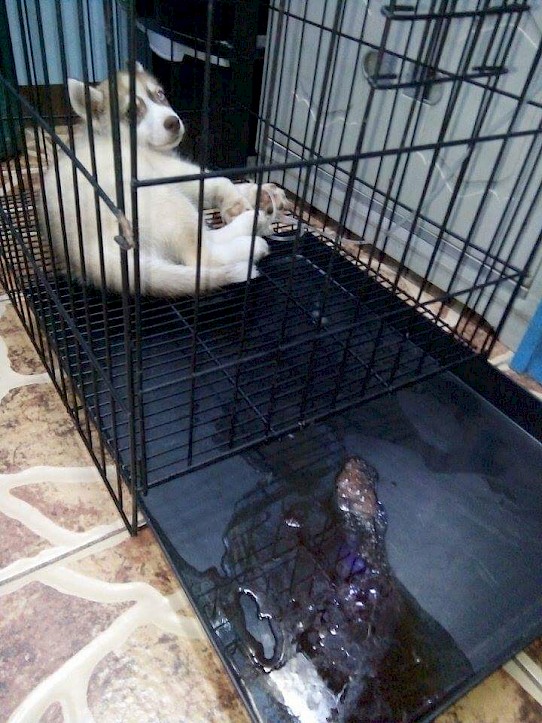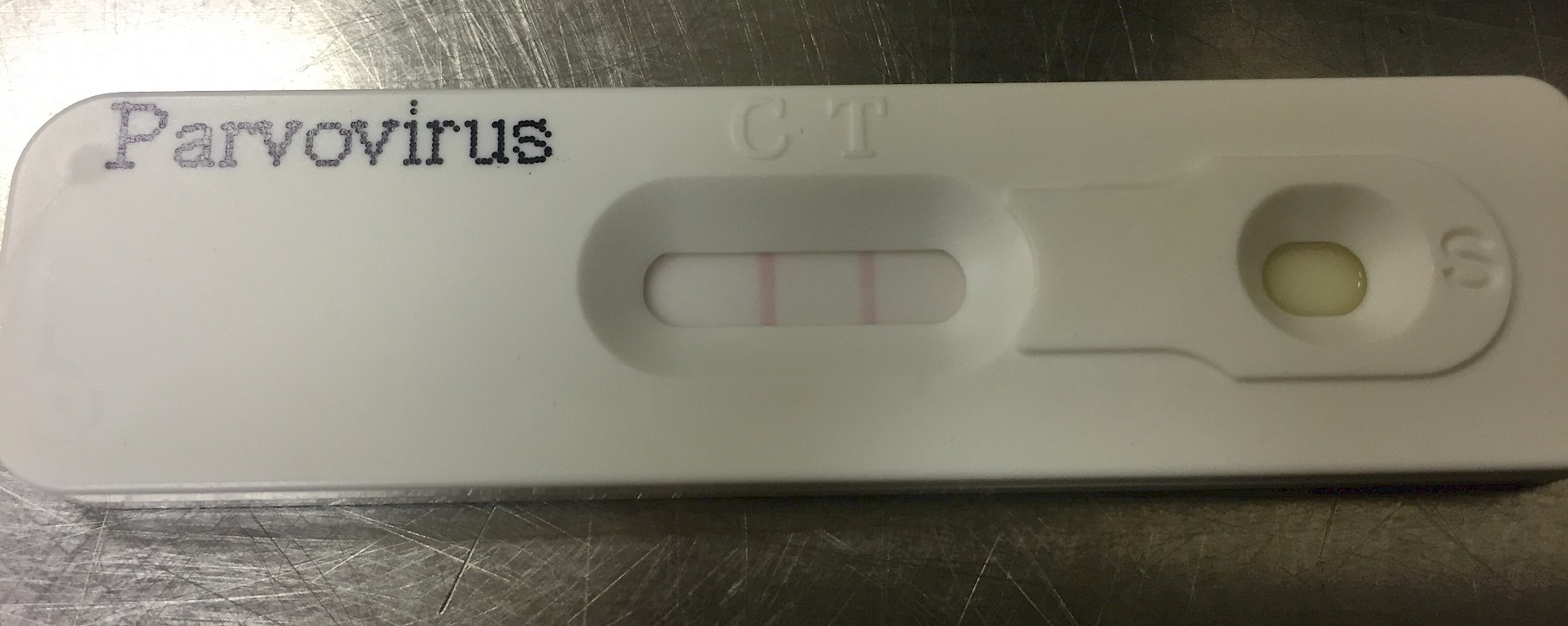A 5 month old puppy acquired 5 days ago was examined in the clinic due to inappetence and recurring episodes of vomiting. The dog has no known history of vaccination prior to purchase. Upon physical examination and laboratory tests the dog was found to be positive with parvoviral infection.
Parvovirus is a very common viral infection afflicting dogs of all ages but more so in unvaccinated puppies. It is a highly contagious disease which can be manifested in two forms. Intestinal which is the more common form that causes diarrhea, vomiting, weight loss and lack of appetite. The less common form is the cardiac form that attacks the heart muscles of young puppies leading to death. Dogs with the said condition may also have low body temperature.
Most deaths from the infection occur within 48 to 72 hours after observing the clinical signs.
The disease is transmitted either by direct contact with an infected dog or indirectly by feco-oral route. Other way of transmission is through fomites by way of shoes that comes in contact with infected feces. It can also be transferred on kennel surfaces, food and water bowls, collars and leashes, and hands and clothing of people who come in contact with the infected dogs.
Unfortunately, there is no known medicine that can kill the virus in infected dogs and treatment is directed in boosting the immune system of the infected animals to fight off the infection. Treatment should be done immediately which includes intensive care in preventing or managing dehydration and preventing secondary bacterial infection. Despite of aggressive and expensive treatment dog can succumb to the infection and later on dies.
The virus can thrive in ground soil for few months so proper cleaning and disposal of infected materials is recommended. The virus is not easily killed so proper use of disinfectants is necessary.
The only way to prevent the virus from infecting susceptible dogs is through vaccination. As early as two months old, we can start vaccinating the puppy against this virus. Although at times a small percentage does not develop immunity and remain susceptible to the infection. For puppies that aren’t vaccinated yet or those that did not received the full vaccines should not be allowed to be expose to other dogs especially those that are infected. People expose to infected animals should be careful and make sure that they properly washed before handling noninfected dogs. Immediate and proper disposal of all materials which came in contact with infected dog is recommended.
For owners who purchased a puppy which shows symptoms of inappetence, vomiting and bloody diarrhea without history of vaccine should bring their puppy to a veterinarian immediately.


Dr.Mary
